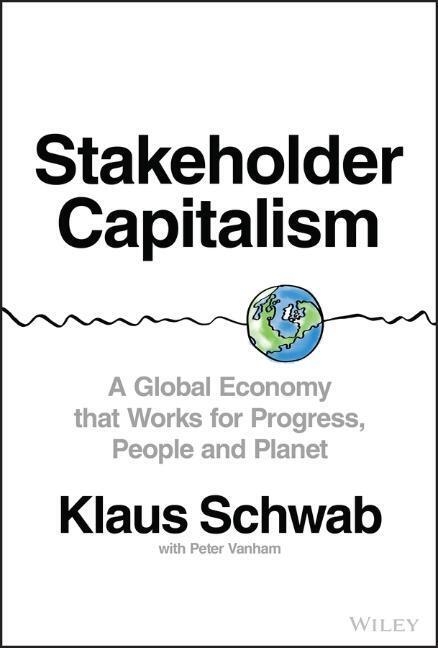
Stakeholder Capitalism
John Wiley & Sons Inc (Verlag)
978-1-119-75613-2 (ISBN)
Our global economic system is broken. But we can replace the current picture of global upheaval, unsustainability, and uncertainty with one of an economy that works for all people, and the planet. First, we must eliminate rising income inequality within societies where productivity and wage growth has slowed. Second, we must reduce the dampening effect of monopoly market power wielded by large corporations on innovation and productivity gains. And finally, the short-sighted exploitation of natural resources that is corroding the environment and affecting the lives of many for the worse must end.
The debate over the causes of the broken economy-laissez-faire government, poorly managed globalization, the rise of technology in favor of the few, or yet another reason-is wide open. Stakeholder Capitalism: A Global Economy that Works for Progress, People and Planet argues convincingly that if we don't start with recognizing the true shape of our problems, our current system will continue to fail us. To help us see our challenges more clearly, Schwab-the Founder and Executive Chairman of the World Economic Forum-looks for the real causes of our system's shortcomings, and for solutions in best practices from around the world in places as diverse as China, Denmark, Ethiopia, Germany, Indonesia, New Zealand, and Singapore. And in doing so, Schwab finds emerging examples of new ways of doing things that provide grounds for hope, including:
- Individual agency: how countries and policies can make a difference against large external forces
- A clearly defined social contract: agreement on shared values and goals allows government, business, and individuals to produce the most optimal outcomes
- Planning for future generations: short-sighted presentism harms our shared future, and that of those yet to be born
- Better measures of economic success: move beyond a myopic focus on GDP to more complete, human-scaled measures of societal flourishing
By accurately describing our real situation, Stakeholder Capitalism is able to pinpoint achievable ways to deal with our problems. Chapter by chapter, Professor Schwab shows us that there are ways for everyone at all levels of society to reshape the broken pieces of the global economy and-country by country, company by company, and citizen by citizen-glue them back together in a way that benefits us all.
Professor Klaus Schwab is Founder and Executive Chairman of the World Economic Forum, the International Organization for Public-Private Cooperation, most known for its Annual Meeting in Davos, Switzerland. He first introduced the stakeholder concept in his 1971 book Modern Enterprise Management in Mechanical Engineering and has been an advocate for stakeholder capitalism ever since.
Co-author Peter Vanham is the Head of Chairman's Communications at the World Economic Forum and author of Before I Was CEO. He writes about the global economy and the people who shape it.
Preface ... ix
Acknowledgments ... xv
About the Author(s) ... xxi
1 75 Years of Global Growth and Development ... 1
2 Kuznets' Curse ... 19
3 The Rise of Asia ... 53
4 Divided Societies ... 73
5 Globalization ... 89
6 Technology ... 111
7 People and the Planet ... 143
8 Stakeholder Capitalism ... 165
9 Stakeholder Companies ... 193
10 Governments, Civil Society, and International Organizations ... 213
Conclusion ... 241
Index
| Erscheinungsdatum | 29.01.2021 |
|---|---|
| Verlagsort | New York |
| Sprache | englisch |
| Maße | 164 x 234 mm |
| Gewicht | 566 g |
| Themenwelt | Naturwissenschaften ► Biologie ► Ökologie / Naturschutz |
| Wirtschaft ► Betriebswirtschaft / Management | |
| Wirtschaft ► Volkswirtschaftslehre | |
| ISBN-10 | 1-119-75613-8 / 1119756138 |
| ISBN-13 | 978-1-119-75613-2 / 9781119756132 |
| Zustand | Neuware |
| Informationen gemäß Produktsicherheitsverordnung (GPSR) | |
| Haben Sie eine Frage zum Produkt? |
aus dem Bereich


